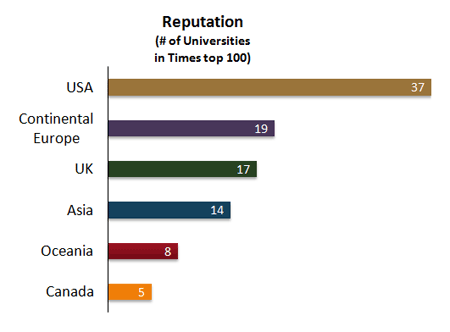|
Federal University Of São Carlos
The Federal University of São Carlos ( pt, Universidade Federal de São Carlos, UFSCar) is a public research university located in São Carlos, state of São Paulo, Brazil. History On December 13, 1960, a federal statute determined the creation of a university in São Carlos. On December 1, 1968, a presidential decree was enacted to create that university and a commission was formed to coordinate the project. The result was the Federal University of São Carlos, the first federal university in São Paulo state. Thancham's farm, localized on the border of Washington Luís highway, was chosen as the initial site. Farm buildings were adapted to provide administration, classrooms, and laboratories. In March 1970, it received its first 96 students for the science and materials engineering degree. The university started with a strong emphasis on natural sciences. This profile changed during the 1990s, when UFSCar created more courses, departments, and added graduate programs in ... [...More Info...] [...Related Items...] OR: [Wikipedia] [Google] [Baidu] |
Public University
A public university or public college is a university or college that is in owned by the state or receives significant public funds through a national or subnational government, as opposed to a private university. Whether a national university is considered public varies from one country (or region) to another, largely depending on the specific education landscape. Africa Egypt In Egypt, Al-Azhar University was founded in 970 AD as a madrasa; it formally became a public university in 1961 and is one of the oldest institutions of higher education in the world. In the 20th century, Egypt opened many other public universities with government-subsidized tuition fees, including Cairo University in 1908, Alexandria University in 1912, Assiut University in 1928, Ain Shams University in 1957, Helwan University in 1959, Beni-Suef University in 1963, Zagazig University in 1974, Benha University in 1976, and Suez Canal University in 1989. Kenya In Kenya, the Ministry of Ed ... [...More Info...] [...Related Items...] OR: [Wikipedia] [Google] [Baidu] |
Ministry Of Education (Brazil)
The Ministry of Education (Portuguese: ''Ministério da Educação''), also known as MEC, an initialism derived from its former name Ministry of Education and Culture (Portuguese: ''Ministério da Educação e Cultura''), is a cabinet-level federal ministry of Brazil. It is tasked with coordinating national education policy and daily affairs, from early childhood to the post-graduate level. History of the institution Before 1930, matters relating to education were under responsibility of the ''National Department of Education'' ( pt, Departamento Nacional do Ensino), which was a part of the then-called Ministry of Justice. In 1930, as Getúlio Vargas took office as president, the Ministry of Education and Public Health ( pt, Ministério da Educação e Saúde Pública) was created, taking away education matters from the Ministry of Justice. In 1953, the ministry was split into two: the Ministry of Health, and the Ministry of Education and Culture ( pt, Ministério da Educaç� ... [...More Info...] [...Related Items...] OR: [Wikipedia] [Google] [Baidu] |
Universities And Colleges In São Paulo (state)
A university () is an institution of higher (or tertiary) education and research which awards academic degrees in several academic disciplines. Universities typically offer both undergraduate and postgraduate programs. In the United States, the designation is reserved for colleges that have a graduate school. The word ''university'' is derived from the Latin ''universitas magistrorum et scholarium'', which roughly means "community of teachers and scholars". The first universities were created in Europe by Catholic Church monks. The University of Bologna (''Università di Bologna''), founded in 1088, is the first university in the sense of: *Being a high degree-awarding institute. *Having independence from the ecclesiastic schools, although conducted by both clergy and non-clergy. *Using the word ''universitas'' (which was coined at its foundation). *Issuing secular and non-secular degrees: grammar, rhetoric, logic, theology, canon law, notarial law.Hunt Janin: "The university ... [...More Info...] [...Related Items...] OR: [Wikipedia] [Google] [Baidu] |
1968 Establishments In Brazil
The year was highlighted by protests and other unrests that occurred worldwide. Events January–February * January 5 – "Prague Spring": Alexander Dubček is chosen as leader of the Communist Party of Czechoslovakia. * January 10 – John Gorton is sworn in as 19th Prime Minister of Australia, taking over from John McEwen after being elected leader of the Liberal Party the previous day, following the disappearance of Harold Holt. Gorton becomes the only Senator to become Prime Minister, though he immediately transfers to the House of Representatives through the 1968 Higgins by-election in Holt's vacant seat. * January 15 – The 1968 Belice earthquake in Sicily kills 380 and injures around 1,000. * January 21 ** Vietnam War: Battle of Khe Sanh – One of the most publicized and controversial battles of the war begins, ending on April 8. ** 1968 Thule Air Base B-52 crash: A U.S. B-52 Stratofortress crashes in Greenland, discharging 4 nuclear bombs. * January 23 ... [...More Info...] [...Related Items...] OR: [Wikipedia] [Google] [Baidu] |
Universities And Higher Education In Brazil
Brazil adopts a mixed system of public and privately funded universities. Public universities can be federally funded or financed by State governments (such as USP, Unicamp and Unesp in the State of São Paulo). Private schools can be for-profit or, in the case of Catholic universities, not-for-profit. History The Portuguese reserved the status of "university" to the University of Coimbra and so, never created schools with that designation in Brazil. Nevertheless, they created several higher and secondary learning schools which provided a level of education comparable or even above that of the institutions denominated "universities" established in some of the neighboring Spanish American colonies as early as the 17th century. Examples were the most important Jesuit colleges in Portuguese colonial Brazil, particularly those located in the cities of Salvador and Rio de Janeiro, which - despite not being designated "universities" - offered liberal arts courses in Latin, Greek, philoso ... [...More Info...] [...Related Items...] OR: [Wikipedia] [Google] [Baidu] |
Buri, São Paulo
Buri is a municipality in the state of São Paulo (state), São Paulo in Brazil. The population is 19,965 (2020 est.) in an area of 1196 km². The elevation is 590 m. References Municipalities in São Paulo (state) {{SaoPauloState-geo-stub ... [...More Info...] [...Related Items...] OR: [Wikipedia] [Google] [Baidu] |
Sorocaba
Sorocaba () is a municipality in the state of São Paulo, Brazil. Sorocaba is the eighth-largest city in the state of São Paulo. Outside the Greater São Paulo region, it ranks behind only Campinas, São José dos Campos and Ribeirão Preto. It is part of the Metropolitan Region of Sorocaba. The population is 687,357 (2020 est.) in an area of 450.38 km2. Over the past twelve years the city has been undergoing extensive urbanization projects, improving streets and avenues, as well as infrastructure for the traffic which the city receives every day. It is the eighth and fourth municipality in the consumer market in the state outside the Greater São Paulo metropolitan area, with a potential annual per capita consumption estimated at $2,400 for the urban population and $917 for rural areas (7200 people) and twenty-ninth-largest city in Brazil with potential for consumption. Still, it is the fourth-largest city of the state in new investments and one of the largest in the co ... [...More Info...] [...Related Items...] OR: [Wikipedia] [Google] [Baidu] |
Araras
Araras () is a municipality located in the interior of State of São Paulo, Brazil. The population is 135,506 as of the 2020 IBGE estimate. Etymology Araras means macaws. Sports União São João Esporte Clube, founded in 1981, is the most successful football club of the city. Notable residents *Alice Piffer Canabrava, economic historian *Thiago Andrade Thiago Eduardo de Andrade (born 31 October 2000) is a Brazilian professional footballer who plays as a forward for Major League Soccer club New York City FC. Career Born in Araras, Andrade began his career at Fluminense before moving to Portu ..., Soccer Player References Populated places established in 1862 1862 establishments in Brazil {{SaoPauloState-geo-stub ... [...More Info...] [...Related Items...] OR: [Wikipedia] [Google] [Baidu] |
Cerrado
The ''Cerrado'' (, ) is a vast ecoregion of tropical savanna in eastern Brazil, particularly in the states of Goiás, Mato Grosso do Sul, Mato Grosso, Tocantins, Minas Gerais, and the Federal District. The core areas of the Cerrado biome are the Brazilian highlands – the ''Planalto''. The main habitat types of the Cerrado consist of forest savanna, wooded savanna, park savanna and gramineous-woody savanna. The ''Cerrado'' also includes savanna wetlands and gallery forests. The second largest of Brazil's major habitat types, after the Amazonian rainforest, the Cerrado accounts for a full 21 percent of the country's land area (extending marginally into Paraguay and Bolivia). The first detailed European account of the Brazilian cerrados was provided by Danish botanist Eugenius Warming (1892) in the book ''Lagoa Santa'', : The above is the original. There are other, later French and Portuguese translations not listed here. in which he describes the main features of the c ... [...More Info...] [...Related Items...] OR: [Wikipedia] [Google] [Baidu] |
Times Higher Education World University Rankings
The ''Times Higher Education World University Rankings'' (often referred to as the THE Rankings) is an annual publication of university rankings by the ''Times Higher Education'' (THE) magazine. The publisher had collaborated with Quacquarelli Symonds (QS) to publish the joint ''THE-QS World University Rankings'' from 2004 to 2009 before it turned to Thomson Reuters for a new ranking system from 2010 to 2013. In 2014, the magazine then signed a deal with Elsevier to provide it with the data used to compile the rankings. The publication now comprises global, subject, and reputation rankings, alongside three regional league tables for Asia, Latin America, and BRICS & emerging economies, which are generated using different weightings. The THE Rankings is often considered one of the most widely observed university rankings together with the ''Academic Ranking of World Universities'', the ''QS World University Rankings'', and others. It is praised for having a new, improved ranking ... [...More Info...] [...Related Items...] OR: [Wikipedia] [Google] [Baidu] |
Times Higher Education
''Times Higher Education'' (''THE''), formerly ''The Times Higher Education Supplement'' (''The Thes''), is a British magazine reporting specifically on news and issues related to higher education. Ownership TPG Capital acquired TSL Education from Charterhouse in a £400 million deal in July 2013 and rebranded TSL Education, of which Times Higher Education was a part, as TES Global. The acquisition by TPG marked the third change of ownership in less than a decade for Times Higher Education, which was previously owned by News International before being acquired by Exponent Private Equity in 2005. In March 2019, private equity group Inflexion Pvt. Equity Partners LLP acquired Times Higher Education from TPG Capital, becoming THE's fourth owners in 15 years. Following the acquisition by the private equity group, Times Higher Education was carved out as an independent entity from TES Global. The investment was made by Inflexion's dedicated mid-market buyout funds. The exclusive a ... [...More Info...] [...Related Items...] OR: [Wikipedia] [Google] [Baidu] |
Folha De S
''Folha de S.Paulo'' (sometimes spelled ''Folha de São Paulo''), also known as simply ''Folha'' (, ''Sheet''), is a Brazilian daily newspaper founded in 1921 under the name ''Folha da Noite'' and published in São Paulo by the Folha da Manhã company. The newspaper is the centerpiece for Grupo Folha, a conglomerate that also controls UOL (Universo Online), the leading Internet portal in Brazil; polling institute Datafolha; publishing house Publifolha; book imprint Três Estrelas; printing company Plural; and, in a joint-venture with the Globo group, the business daily ''Valor'', among other enterprises. It has gone through several phases and has targeted different audiences, such as urban middle classes, rural landowners, and the civil society, but political independence has always been one of its editorial cornerstones. Ever since 1986, ''Folha'' has had the biggest circulation among the largest Brazilian newspapers – according to data by IVC (Instituto Verificador de Circ ... [...More Info...] [...Related Items...] OR: [Wikipedia] [Google] [Baidu] |




